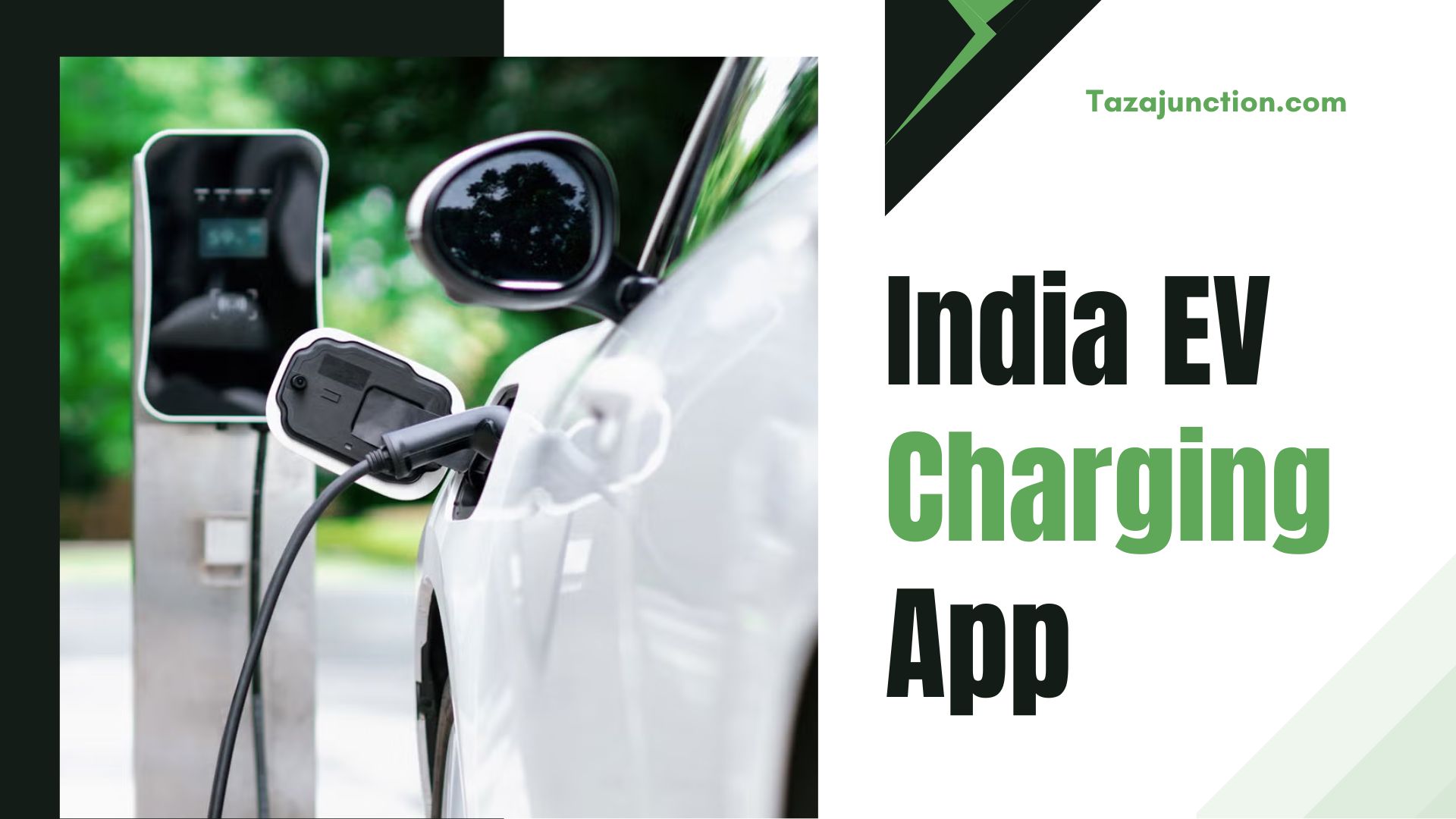The electric vehicle (EV) revolution in India has been steadily gaining momentum over the past few years. With government incentives, growing environmental awareness, and an increasing number of manufacturers entering the EV market, adoption has been accelerating.
However, while vehicles are important, the real challenge often lies in charging infrastructure and digital platforms that support it.
Recently, news surfaced that India EV charging app is set to skip personal data collection, a move that has sparked discussion among industry experts, EV owners, and digital privacy advocates alike.
This development represents more than just a technological decision—it highlights the growing tension between convenience and privacy in India’s fast-expanding digital ecosystem.
As we dive with TazaJunction.com into the details, it becomes clear that this decision could reshape user trust and set new benchmarks for digital platforms across industries.
Table of Contents
Why Data Privacy Matters in the EV Sector?
Most modern apps collect user data, whether for improving services, targeting advertisements, or monetizing in other ways. In the EV ecosystem, apps often request sensitive information like location history, payment details, and even driving habits. For users, this can feel invasive, particularly when data protection laws are still evolving.
By announcing that India EV charging app will avoid personal data collection, developers are signaling a strong commitment to user privacy.
This decision aligns with the growing awareness of digital rights in India and the push toward compliance with the upcoming Digital Personal Data Protection Act (DPDP Act).
Skipping personal data collection not only reassures users but also simplifies app onboarding. Drivers can focus on finding a charging point rather than worrying about how their personal data might be stored or shared.
Key Features Expected in the App
Although privacy is the headline feature, the app is expected to include a range of practical tools designed to enhance the EV driving experience.
- Real-Time Station Locator – Users will be able to find the nearest charging stations with availability status.
- Seamless Payments – Integration with UPI and digital wallets for quick, hassle-free transactions.
- Charging Speed Information – Details about fast chargers versus slow chargers at each location.
- Battery Health Insights – Without collecting personal identifiers, the app may still offer generic tips to maximize battery life.
- Anonymous Feedback System – Users can rate charging stations and leave reviews without revealing their identities.
Together, these features make India EV charging app a promising tool not only for convenience but also for setting a new gold standard in user-first design.
Industry Impact and Market Implications

Skipping personal data collection is a bold move in an industry where data often drives business models. Many global EV platforms rely heavily on user data for analytics and monetization. By contrast, India EV charging app appears to prioritize long-term trust over short-term gains.
This could influence other Indian mobility apps, from ride-sharing services to fuel station locators, to rethink their strategies. If users come to expect privacy-first designs, companies that fail to adapt may lose relevance.
Additionally, EV adoption in India could accelerate as more users feel comfortable engaging with charging platforms without fear of misuse of their personal information. A transparent approach builds loyalty, which is critical as competition among charging networks heats up.
How This Aligns with Government Policy?
The Indian government has been actively pushing for cleaner transportation solutions and robust digital ecosystems. The DPDP Act emphasizes consent-driven data processing, which means companies need explicit approval before collecting personal details.
By designing India EV charging app without personal data collection, developers are effectively future-proofing the platform. It ensures compliance with current regulations while also anticipating stricter rules that may come later.
Furthermore, this approach aligns with India’s broader goals of digital sovereignty—where user data stays within the country and platforms are accountable to domestic regulations rather than foreign entities.
Challenges Ahead
While the privacy-first model sounds appealing, it comes with its own challenges:
- Limited Personalization – Without user profiles, tailoring experiences (like recommending stations based on past visits) becomes difficult.
- Revenue Models – Apps that skip data collection may struggle to find monetization avenues outside of transaction fees or partnerships.
- User Verification – Ensuring secure payments and preventing misuse while avoiding personal data storage will require innovative security solutions.
That said, these challenges also present opportunities for innovation. For instance, anonymous tokens or blockchain-based identity systems could balance privacy with trust.
User Reactions So Far
Early reactions from EV owners and privacy advocates have been largely positive. Many see India EV charging app as a refreshing alternative to the data-heavy platforms dominating other industries.
Some users, however, have expressed curiosity about how the app will manage issues like lost transactions or account recovery without personal identifiers. Clear communication from developers will be essential in addressing such concerns.
Global Context: Lessons from Abroad
Globally, EV charging apps in markets like Europe and North America typically collect user data for analytics and personalization. However, growing awareness around digital rights has led to stricter regulations such as GDPR in Europe.
If successful, India EV charging app could become a model for privacy-centric platforms not just in the EV industry but across the digital economy. This could even inspire global players to rethink their reliance on personal data.
Future Outlook
The long-term success of India EV charging app will depend on its ability to balance user trust with functionality. If the app delivers a smooth, reliable experience while keeping privacy intact, it could set a precedent for other sectors like healthtech, fintech, and mobility.
We may also see a ripple effect where competitors launch similar privacy-first solutions to keep up with evolving consumer expectations. This could trigger a much-needed shift in how apps are designed, moving from “data-hungry” to “user-respecting.”
Conclusion
The launch of India EV charging app marks a milestone not only for the EV sector but also for digital privacy in India. By skipping personal data collection, the platform sends a strong message: user trust is more valuable than monetizing data.
As EV adoption continues to rise, this app has the potential to become a cornerstone of India’s green mobility infrastructure. More importantly, it could redefine what users expect from digital platforms across industries.
If successful, India EV charging app may well prove that convenience and privacy are not mutually exclusive but can coexist to deliver a better, more ethical digital experience.

